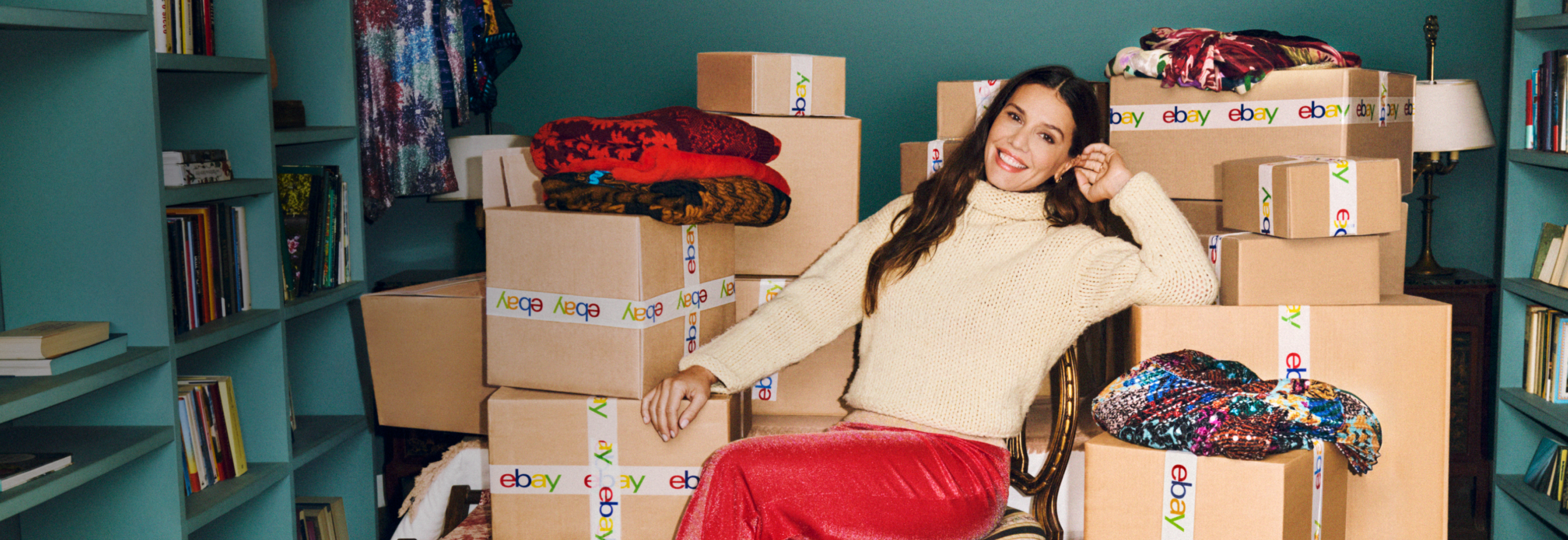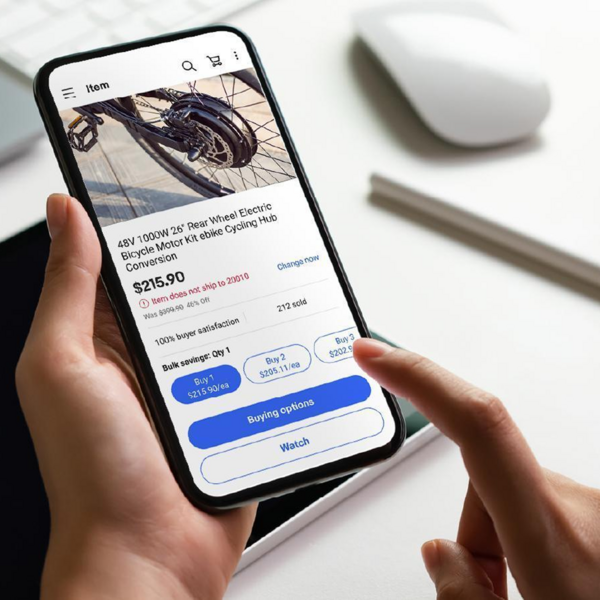Start your own small business
Ready to turn your big idea into a small business? You’re in the right place.


Access to a vast worldwide marketplace
With over 134 million buyers in over 190 markets we give you—and your new business—far-reaching access to global ecommerce.
A secure place to sell for your business
Businesses like yours can sell with confidence knowing you’re backed by our powerful technology, dedicated teams, and proactive policies.
More ways to make a difference
From our leadership in global recommerce, to our commitment to a better future, there are lots of reasons to feel good about selling on eBay.
Getting your business off the ground is easier than you think
Starting a business may seem daunting, but it can be more achievable than you'd think. With our vibrant community, extensive resources, and decades of experience in the ecommerce industry, we're here to support you every step of the way.
Dive in below to discover how simple it can be to turn your idea into a thriving online business.

Know the basics
First, let’s get familiar with some key terms every business owner needs to know:
Problem
The need or gap your business addresses. Understanding this helps you tailor what you offer to meet customer demands.
Competitors
Look for other businesses that offer similar products or services. Knowing who your competitors are helps you find ways to stand out.
Unique Selling Proposition (USP)
This is a statement that shows your customers what makes you, or your product, special. Developing a USP is an easy way of showing what makes you stand out from your competitors.
Sourcing
This is how you’ll get the products you want to sell. Think about things like cost and how reliable your product supply is to keep your business running smoothly.
Revenue
Revenue is the total amount of money your business earns from selling goods or services, before you factor in any costs or expenses.
Margins
Your margins are the difference between what it costs to obtain your products and how much you sell them for. Knowing your margins is important for making sure your business idea is profitable.
Apply your knowledge to your new business
Next, get clear on your strategy by asking yourself a few fundamental questions that will shape your business journey.
What products will you sell?
Think about products you’re passionate about and know well. Research market trends and see what’s popular or where there might be a gap you can fill. Also, take a look at what your competitors are doing.
How will you source your products?
Look into different ways to get your products, like buying from wholesalers, finding your products locally, or making them yourself. Consider the costs, how reliable your sourcing methods are, and if they can keep up with your business as it grows.
Who are your potential customers?
Identify who you’re selling to and understand what they need. The more you know about your ideal customers, the more you can tailor your products and marketing to them.
What problem does your business solve?
Define the issue your business tackles. How will your products and your business solve that problem better than your competition? This will help shape your business strategy.
What makes your business different from competitors?
Determine your unique selling proposition (USP) and how it sets you apart. It could be the quality of your products, your customer service, or a unique brand story.
What are your profit margins?
Estimate how much it will cost to get your products and how much you can sell them for to understand your business’ potential profit margins. Use tools like eBay’s Product Research to see what similar products are selling for.
See what small business success looks like
Check out these scenarios of how sellers* like you can build successful small businesses and live your dreams. As you read each story, think about how each seller found success by getting clear on the questions above. What inspiration can you take from them to apply to your small business idea?

Ivan had been making vegan snacks for his dog, Bailey, and soon started getting requests from friends for their pets, too. One day, his friend Tom, a veterinary nurse, approached him with an idea to turn their shared love of animals into a real business.
Their research showed that dog owners prioritised giving high-quality and nutritious food to their pets, so they knew they had a solid market of potential buyers. With Ivan's experience as a pet owner and Tom’s veterinary credentials, they had a unique selling proposition that offered both relatability and credibility. After developing their own organic, 100% locally-sourced dog snacks, they started their business, Pawnutts, on eBay.
Since launching, Pawnutts grew at a rapid pace as first-time buyers became repeat customers. After researching ways they could scale business even further and stand out from their competitors, Ivan and Tom decided to expand their product line to include pet toys and accessories. Because of this, their loyal customer base became dedicated to making Pawnutts their go-to eBay business to buy and bundle pet snacks, toys and accessories.
Through Pawnutts, Ivan and Tom have built a strong community of pet owners who value quality ingredients, nutrition, and sustainable business practices. Their dedication to thoughtfully crafted pet products have earned them a loyal following on eBay, with customers returning time and time again.
Turn your idea into a small business
Once you’re clear on your answers to the above questions, it’s time to take the first steps to make your business a reality.
Draft your business plan
Solidify your ideas and plans into a formal document that will be the foundation of your business journey.
Make it legal
Find out what type of business makes sense for you, and how to legally register your new small business.
Open a business account
Once you have a registered business, you can open an eBay business account and benefit from all the resources and knowledge of selling on eBay.
Keep growing your business with eBay
Your journey to being a small business owner is just getting started. Wondering where to go next? We’ve got you covered.
*All seller stories depicted are fictional and are for educational and inspirational purposes only.



